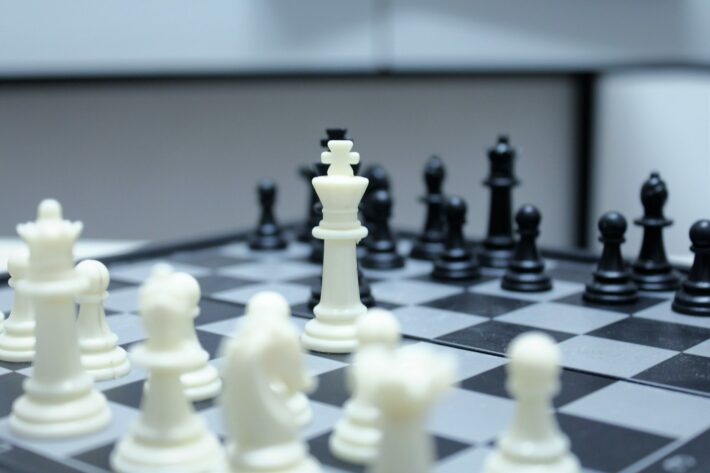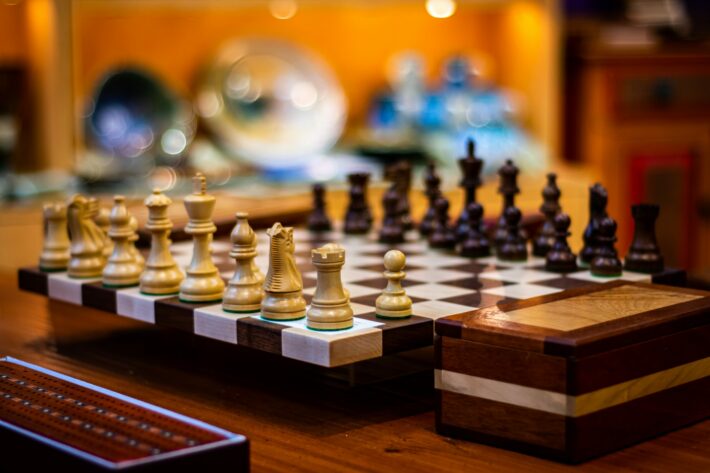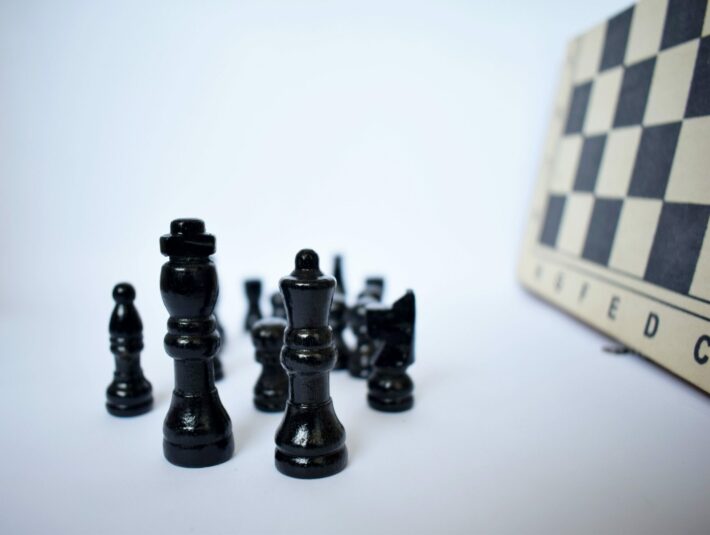Chess, the timeless game of strategy and intellect, has been played for centuries. Throughout its rich history, numerous legendary players have left their mark on the chess world, creating a treasure trove of games and positions that continue to inspire and captivate players of all levels. Studying these chess classics is a surefire way to elevate your game and gain a deeper understanding of the strategic principles that underpin success on the board.
In the forthcoming sections, we’ll explore the world of chess classics and delve into effective strategies for studying them. Whether you’re a beginner seeking to improve your skills or an experienced player looking to refine your craft, mastering the classics is an essential step on your chess journey.
What are chess classics and why are they important for your development as a player?
Chess classics refer to the games and positions played by renowned chess players throughout history. These iconic encounters have stood the test of time and hold immense educational value for aspiring players.
By studying chess classics, you gain exposure to a wide range of tactical and strategic ideas, as well as witness the brilliance of past masters. The classics provide a foundation of knowledge and inspiration that can significantly contribute to your development as a player.
How can studying chess classics enhance your understanding of strategic concepts?

Chess classics offer a window into the minds of chess legends, allowing you to dissect their thought processes and understand the strategic decisions they made during critical moments in their games. By immersing yourself in these games, you develop a deeper understanding of strategic concepts such as pawn structure, piece activity, positional sacrifices, and long-term planning. Analyzing the classics helps you internalize these strategic principles, making them more accessible and applicable in your games.
| Value of Studying Chess Classics | Practical Applications | Long-Term Benefits | |
|---|---|---|---|
| Improved Strategy | Studying chess classics provides deep insights into strategic concepts. | Apply these strategic principles in your own games. | Develop a more sophisticated and nuanced approach to chess. |
| Decision-Making Skills | Analyzing the thought processes of chess legends enhances your own decision-making abilities. | Make more informed and calculated moves during games. | Sharpen your analytical thinking and improve overall decision-making skills. |
| Pattern Recognition | Studying chess classics helps in recognizing recurring patterns and themes. | Identify similar patterns in your own games and exploit them. | Develop a stronger intuition and improve pattern recognition in different positions. |
| Historical Context | Understanding the historical context of chess classics adds depth to your knowledge. | Appreciate the evolution of chess and its impact on modern play. | Gain a broader perspective on the game’s development and evolution. |
| Inspiration and Motivation | Studying chess classics can inspire and motivate you to improve your game. | Overcome plateaus and push yourself to new heights in your chess journey. | Foster a deeper passion and enthusiasm for chess. |
Which chess legends should you prioritize studying to accelerate your progress?
There are countless chess legends whose games are worth studying, but it’s essential to prioritize based on your playing style and preferences. Some renowned players whose classics are highly recommended include:
-
Garry Kasparov: Known for his dynamic and aggressive style, studying Kasparov’s games can sharpen your tactical skills and understanding of attacking play.
-
Anatoly Karpov: Karpov’s games excel in strategic mastery and positional understanding. Studying his classics can enhance your endgame technique and overall positional play.
-
Bobby Fischer: Fischer’s games showcase precise calculation and an emphasis on opening preparation. Analyzing his classics can improve your tactical acumen and opening repertoire.
-
Mikhail Tal: Tal’s imaginative and sacrificial style makes his games a joy to study. By delving into his classics, you can develop a fearless and creative approach to chess.
Is it better to analyze chess classics alone or with a study group?
The choice between studying chess classics alone or with a study group depends on your learning style and preferences. The solo analysis allows for focused concentration and a deep dive into the nuances of each game.
It promotes independent thinking and self-discovery, which can be beneficial for developing your analytical skills. On the other hand, studying classics with a group can provide diverse perspectives, lively discussions, and shared insights. Collaborative analysis can help uncover hidden ideas and foster a supportive learning environment.
What are the best resources for accessing and studying chess classics?
In the digital age, accessing chess classics has never been easier. Several resources offer a wealth of classic games, annotated by experts and grandmasters. Some popular options include:
-
Chess books: Numerous books feature collections of classic games with detailed annotations, providing valuable insights into the thought processes of the players.
-
Online databases: Websites like ChessBase and lichess.org provide extensive databases where you can search for and analyze games played by chess legends.
-
YouTube channels: Many chess-related YouTube channels feature in-depth analyses of classic games, often presented engagingly and entertainingly.
-
Chess software: Chess software such as ChessBase and Chess.com’s analysis tools allow you to explore classic games and conduct your analysis.
How can you effectively incorporate chess classics into your training routine?

To make the most of studying chess classics, it’s essential to incorporate them into your training routine in a structured and consistent manner. Here are some effective strategies:
-
Select a specific theme: Focus on studying games that revolve around a particular strategic or tactical theme, such as pawn structure, sacrifices, or attacking patterns. This targeted approach helps you deepen your understanding of specific aspects of the game.
-
Annotate and analyze: Take the time to annotate and analyze the games yourself. This active engagement enhances your analytical skills and helps you internalize the lessons from the classics.
-
Solve puzzles: Extract key positions from the classics and turn them into puzzles. Solving these puzzles improves your tactical vision and pattern recognition.
-
Replicate critical positions: Set up critical positions from the classics on a physical or digital chessboard. Play through the moves yourself, trying to understand the players’ decisions and thought processes.
What can you learn from the thought processes and decision-making of chess legends?
Analyzing the thought processes and decision-making of chess legends is a valuable exercise that can shape your approach to the game. By studying the classics, you gain insight into how grandmasters evaluate positions, make strategic choices, and calculate variations. Understanding the reasoning behind their moves allows you to broaden your chess horizon, improve your decision-making skills, and develop a more intuitive sense of the game.
Are there specific techniques or methods to extract maximum value from studying chess classics?
To extract maximum value from studying chess classics, consider implementing the following techniques and methods:
-
Active learning: Engage with the games actively by asking yourself questions, predicting moves, and evaluating the consequences of different choices. This active approach deepens your understanding and promotes critical thinking.
-
Regular review: Revisit the classics periodically to reinforce the lessons learned and consolidate your knowledge. The regular review helps you internalize the strategic ideas and patterns discovered in the games.
-
Comparative analysis: Compare the classics to contemporary games played by top players. By identifying similarities and differences, you gain insights into the evolution of chess and how the classics continue to influence modern play.
-
Visualization: Visualize the positions and variations in your mind before moving the pieces on the board. This mental exercise strengthens your visualization skills, enhancing your ability to calculate accurately during games.
Can studying chess classics improve your ability to anticipate and counter your opponent’s moves?
Studying chess classics can undoubtedly improve your ability to anticipate and counter your opponents’ moves. Through careful analysis of the classics, you develop an intuitive understanding of recurring patterns and typical ideas in various positions.
This knowledge allows you to recognize potential threats, anticipate your opponent’s plans, and respond effectively. By internalizing the strategic concepts present in the classics, you gain a competitive edge in your games and become better equipped to handle unexpected situations over the board.
How can the study of chess classics inspire and enhance your creativity on the board?
The study of chess classics serves as a wellspring of inspiration, fueling your creative endeavors on the board. The imaginative and innovative play exhibited by chess legends can ignite your spark of creativity, encouraging you to explore new ideas, experiment with different plans, and think outside the box. The classics remind us that chess is an art form as much as it is a battle of wits, inviting you to infuse your games with originality, flair, and personal expression.
Is it necessary to memorize specific chess classics or focus on understanding the underlying principles?
While memorizing specific chess classics can be impressive, it is not essential for improvement. Instead, focus on understanding the underlying principles and ideas presented in the games.
By grasping strategic concepts, patterns, and typical maneuvers, you develop a solid foundation that can be applied to a wide variety of positions. Understanding the principles allows for flexibility and adaptability, enabling you to navigate unfamiliar territory and make informed decisions during your games.
What are some common pitfalls to avoid when studying chess classics?
When studying chess classics, it’s important to be mindful of potential pitfalls that can hinder your progress. Here are a few common mistakes to avoid:
-
Superficial analysis: Merely replaying the moves without diving deeper into the ideas and decisions behind them is a missed opportunity. Take the time to analyze and understand the critical moments and strategic choices made by the players.
-
Passive observation: Avoid passive observation of the games. Instead, actively engage with the positions, ask questions, and challenge yourself to find the best moves and ideas.
-
Over-reliance on engine evaluations: While chess engines are powerful tools, relying solely on their evaluations can stifle your analytical skills and creative thinking. Use engines as a resource, but develop your understanding of the positions.
-
Neglecting personal growth: It’s easy to get caught up in studying the classics without applying the lessons to your games. Strive for a balance between studying and playing, using the classics as a source of inspiration and guidance for your development.
How can studying chess classics help you develop a personal playing style?

Studying chess classics is not just about learning specific moves or strategies; it also plays a crucial role in developing your playing style. By immersing yourself in the games of different players with diverse approaches, you gain exposure to various playing styles and philosophies.
This exposure allows you to absorb elements that resonate with you and align with your strengths and preferences. Over time, you cultivate a unique playing style that reflects your personality, creativity, and strategic inclinations.
Are there any modern applications or adaptations of chess classics in contemporary play?
Chess classics continue to shape the modern game, with many contemporary players drawing inspiration from and adapting the ideas presented in the classics. The strategic concepts and tactical patterns found in the classics serve as a foundation for the contemporary opening theory, middlegame play, and endgame technique.
Modern players often build upon the work of past masters, incorporating and refining their ideas to suit the demands of modern chess. By studying the classics, you gain insights into the rich tapestry of chess history while also staying connected to the latest developments in the game.
How can the study of chess classics contribute to your overall enjoyment and appreciation of the game?
Beyond its educational value, the study of chess classics enhances your overall enjoyment and appreciation of the game. Immersing yourself in the timeless battles fought by chess legends allows you to experience the beauty, complexity, and artistic qualities of chess.
The classics provide a glimpse into the minds of these remarkable individuals, inviting you to marvel at their brilliance and celebrate the rich heritage of the game. By engaging with the classics, you deepen your connection with the chess community, share in the collective passion for the game, and forge your unforgettable moments on the board.
Wrap-up: Mastering the Classics for Chess Excellence
In the quest for chess excellence, the study of chess classics emerges as a vital component of a player’s journey. By delving into the games and positions played by chess legends, you gain invaluable insights into strategic concepts, decision-making processes, and the artistry of the game.
Whether you choose to analyze the classics alone or with a study group, the best resources available today provide ample opportunities to access and study these treasures of the past. By incorporating the study of chess classics into your training routine, you enhance your understanding, sharpen your skills, and develop your playing style.




